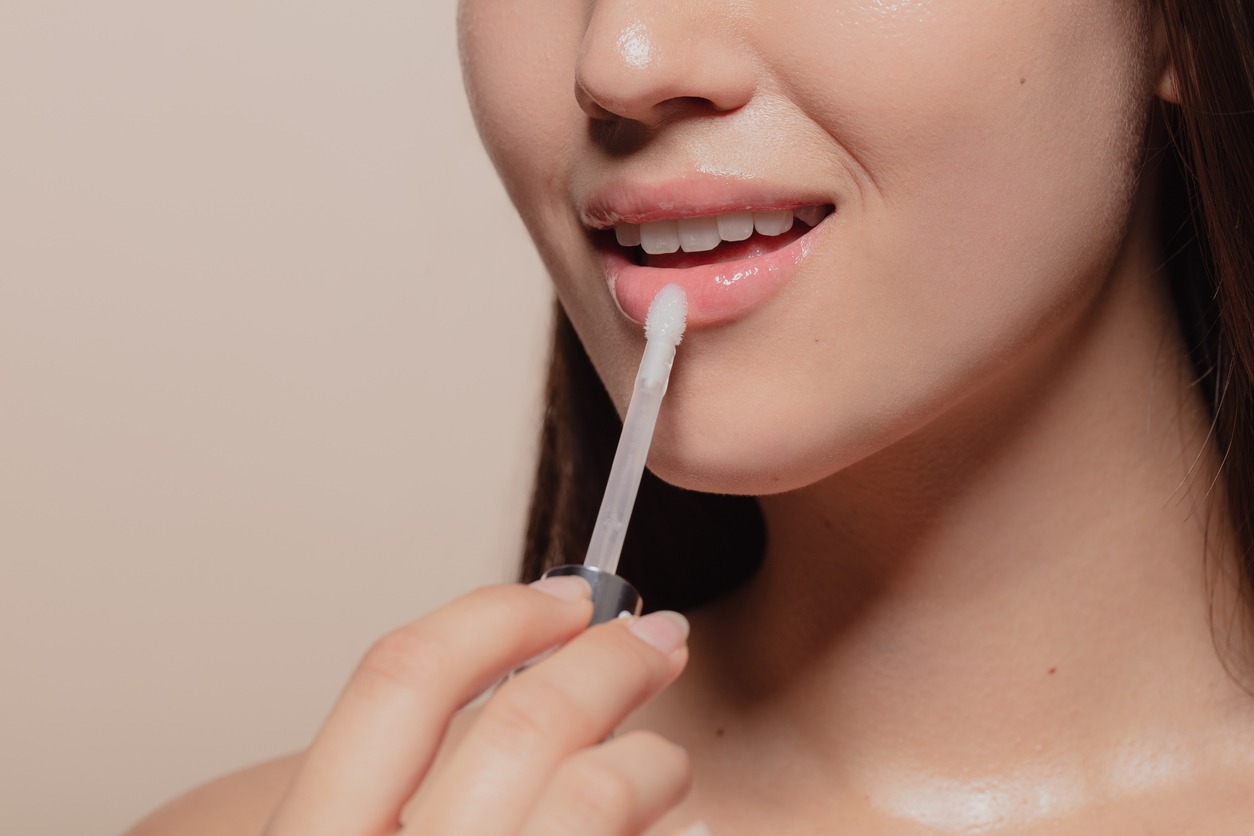Lips are one of the most noticeable features on the face, essential for speech and expression. Unlike the rest of the skin, which has up to 16 cellular layers, lips are thinner and have only 3 to 5 layers. This makes them more delicate and susceptible to damage. To maintain their health and keep them soft, lips require a dedicated care routine. Here’s a comprehensive guide to the best practices for lip care.
Understanding Lip Skin
Firstly, it’s important to understand that the skin on your lips is unique. It doesn’t contain oil glands like the rest of your skin, so it can’t moisturize itself. This is why lips can easily become dry and chapped. Moreover, lips have a lower amount of melanin, the pigment that helps protect skin from the sun, making them more vulnerable to UV damage.
Lip skin is anatomically distinct from the other skin on your face and body. Understanding its unique characteristics is important for both health and cosmetic reasons. Here’s a detailed look at the skin of the lips:
Thickness: The skin on the lips is significantly thinner than that on the rest of the body. While facial skin typically has up to 16 layers, lip skin has only about 3 to 5. This thinness makes the underlying blood vessels more apparent, giving the lips their characteristic pink or reddish hue.
Stratum Corneum: The outermost layer of skin, known as the stratum corneum, is also much thinner on the lips, which is why they can easily become chapped or dry.
Melanin: Lip skin contains less melanin, the pigment that protects skin from UV rays, compared to the rest of your skin. This lower melanin level means lips have less natural protection from the sun and are at a higher risk of sunburn and sun damage.
Sebaceous Glands: Unlike the rest of your skin, which contains oil (sebaceous) glands, the lips do not. This absence means they don’t produce sebum, the oil that helps keep skin moisturized, leading to a greater propensity for drying and cracking.
Hair Follicles: The lips also lack hair and the sweat glands associated with hair follicles. This means they don’t sweat and cannot benefit from the protective layer of sweat and body oils that help to keep skin smooth.
Hydration: Inside and Out
Hydration is key to maintaining soft lips. Drinking plenty of water throughout the day helps maintain overall hydration and benefits the lips. Externally, applying a hydrating lip balm can provide a protective barrier and lock in moisture. Look for ingredients like hyaluronic acid, glycerin, and aloe vera.
Nutritious Diet for Lip Health
A nutritious diet is fundamental not just for overall health, but also for maintaining the health and vitality of your lips. Since your lips don’t have oil glands, they rely heavily on external moisture and nutrition. A balanced diet rich in vitamins and minerals supports lip health. Vitamins A, C, and E are particularly beneficial for skin repair and hydration. Foods like carrots, spinach, citrus fruits, nuts, and seeds are great choices.
Collagen-Boosting Foods that contain proline and lysine which are amino acids involved in collagen production, found in egg whites, wheat germ, dairy products, cabbage, and mushrooms. Chamomile or Calendula Tea are also known for their calming properties, these teas might contribute to healthier skin and lips when consumed regularly.
Gentle Exfoliation
Just like the rest of the skin, lips benefit from exfoliation to remove dead skin cells. However, the lips’ delicate nature requires gentle methods. A soft toothbrush or a homemade sugar scrub (using fine sugar mixed with honey or olive oil) can be used once or twice a week to exfoliate gently. There are two types of exfoliation you can do:
Mechanical Exfoliation: This can be done using a soft toothbrush, a washcloth, or a lip scrub. Homemade lip scrubs often include ingredients like sugar mixed with honey or oil. The abrasive nature of the sugar granules helps to physically remove the dead skin cells when gently rubbed against the lips.
Chemical Exfoliation: Lip exfoliants can also contain chemical exfoliants like alpha hydroxy acids (AHAs) or beta hydroxy acids (BHAs). These ingredients work by dissolving the bonds that hold dead skin cells together, allowing them to be wiped away more easily.
Protecting Lips from the Sun
Sun protection is vital for lip care. Use lip products with SPF to protect against UVA and UVB rays, even on cloudy days. Sun damage can lead to dry, cracked lips and, in severe cases, skin cancer.
Avoiding Harmful Habits
Certain habits can adversely affect lip health. These include licking your lips, which actually dries them out more, biting or peeling flaky skin, and smoking, which can darken lips and lead to premature wrinkles.
Moisture-Retaining Ingredients
Look for lip balms and other lip care products that contain ingredients known for sealing in moisture, such as beeswax, petroleum jelly, shea butter, and coconut oil. These create a barrier to prevent loss of moisture and protect against harsh weather conditions.
Nighttime Lip Treatment
Incorporate a lip treatment into your nighttime skincare routine. Apply a thicker layer of a nourishing lip balm or treatment before bed to help repair and rejuvenate the lips overnight.
Monitoring Allergic Reactions
Be aware of what you apply to your lips. Some products can cause allergic reactions, leading to irritation or dermatitis. If you notice persistent dryness or irritation, consider switching to hypoallergenic products and consult with a dermatologist if necessary.
The Role of Humidifiers
Using a humidifier, especially during dry winter months or in arid climates, can help maintain ambient humidity and prevent your lips from drying out.
Proper Application of Cosmetics
When using lip color, opt for quality products and apply a base layer of lip balm first. Remove lipstick and other lip makeup completely before going to bed to allow your lips to breathe and recover.
Regular Checks and Consultations
Regularly inspect your lips for any signs of irregularities, such as persistent dry patches, cracks that won’t heal, or changes in pigmentation. Consult with a healthcare provider if you notice anything concerning.
Avoiding Overuse of Long-Lasting Lipsticks
Long-lasting lipsticks can be drying. Limit their use and when you do use them, ensure you apply a moisturizing base first. Always remove the product gently at the end of the day.
Lifestyle Adjustments
Maintaining overall health through stress management and avoiding excessive alcohol and caffeine can contribute to healthier lips. Stress and diuretics can lead to dehydration, impacting lip health.
Lip Care Products for Different Seasons
Adjust your lip care routine according to the seasons. Winter might call for more emollient products, while summer might require lighter balms with SPF. Emollients fill in gaps between skin cells that are missing moisture, which smooths and softens the lips. They are particularly beneficial for chapped or dry lips, providing relief from irritation and helping to repair the lip’s delicate skin barrier. Lip emollients can be found in various lip care products, including:
- Lip balms and chapsticks: These often contain emollient ingredients such as beeswax, lanolin, petroleum jelly, shea butter, cocoa butter, and various oils (like coconut, almond, or jojoba).
- Lip oils: A more recent trend, these provide a high concentration of emollient ingredients and often come in a form similar to lip gloss.
- Lip creams: These are thicker than balms and provide intense moisture for severely dry, cracked lips.
Treating Underlying Conditions
Sometimes, chapped lips can be a sign of an underlying condition, such as vitamin deficiencies or dehydration. If lip dryness persists despite regular care, seek medical advice.
By incorporating these best practices into your daily routine, you can maintain the health and appearance of your lips. Remember that the lips can be an indicator of overall health, so taking good care of them is just as important as any other skincare regimen. Healthy, well-cared-for lips not only feel better, but they also boost your confidence by enhancing your natural smile.


